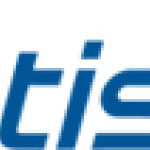- Industry: Telecommunications
- Number of terms: 29235
- Number of blossaries: 0
- Company Profile:
ATIS is the leading technical planning and standards development organization committed to the rapid development of global, market-driven standards for the information, entertainment and communications industry.
A device that provides an accessing arrangement at a user location to either switched or point-to-point, data-conditioned circuits at a specifically established data signaling rate. Note: A CSU provides local loop equalization, transient protection, isolation, and central office loop-back testing capability.
Industry:Telecommunications
A device that provides synthesized voice responses to dual-tone multifrequency signaling input by processing calls based on (a) the call-originator input, (b) information received from a host data base, and (c) information in the incoming call, such as the time of day. Note: ARUs are used to increase the number of information calls handled and to provide consistent quality in information retrieval.
Industry:Telecommunications
A device that provides the control logic for terminal authentication, location management, alerting, and routing to radio personal terminal / radio terminations (RPT/RTs. )
Industry:Telecommunications
A device that radiates radio frequency energy during the course of its operation although the device is not intentionally designed to generate radio frequency energy.
Industry:Telecommunications
A device that reads, writes, and/or erases data on a storage medium.
Industry:Telecommunications
A device that reduces jitter in a digital signal. Note 1: A dejitterizer usually consists of an elastic buffer in which the signal is temporarily stored and then retransmitted at a rate based on the average rate of the incoming signal. Note 2: A dejitterizer is usually ineffective in dealing with low-frequency jitter, such as waiting-time jitter.
Industry:Telecommunications
A device that renders divergent or convergent rays more nearly parallel. Note: The degree of collimation (parallelism) should be stated.
Industry:Telecommunications
A device that requires a source of energy for its operation and has an output that is a function of present and past input signals. Note: Examples of active devices include controlled power supplies, transistors, LEDs, amplifiers, and transmitters.
Industry:Telecommunications
A device that responds to a physical stimulus, such as thermal energy, electromagnetic energy, acoustic energy, pressure, magnetism, or motion, by producing a signal, usually electrical.
Industry:Telecommunications
A device that responds to a signal from an alarm sensor. Note: Examples of alarm indicators include bells, lamps, horns, gongs, and buzzers.
Industry:Telecommunications
